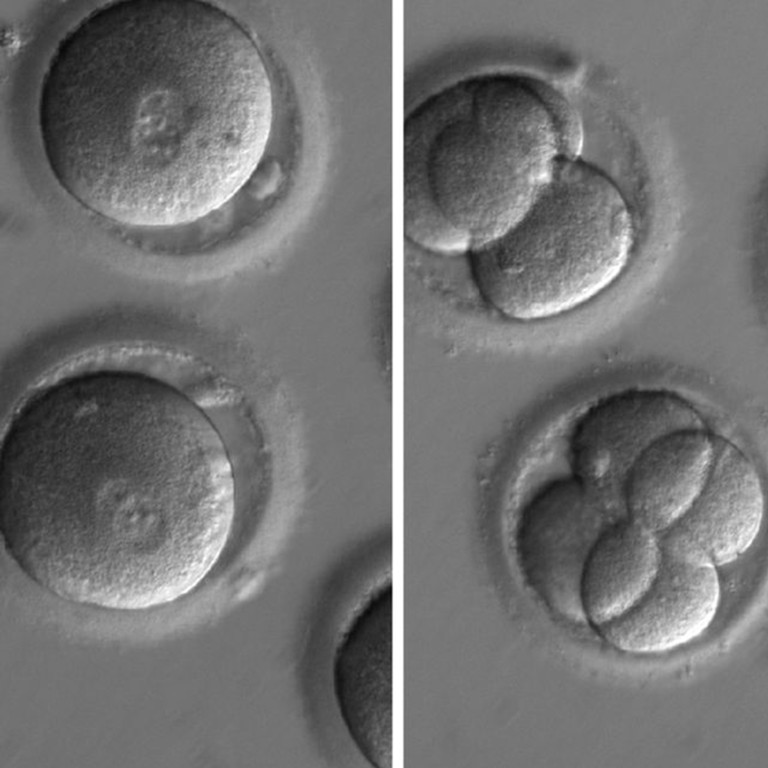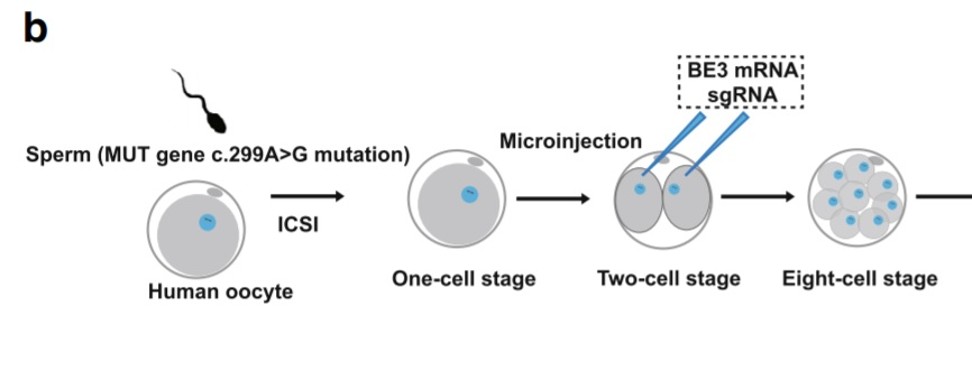
Gene-editing breakthrough in China comes with urgent call for global rules
- Leading Chinese scientist warns approved modified babies could be just a year or two away
- Technology could be used as a weapon of mass destruction without regulation
Safe production of gene-edited babies could be possible in just one or two years, and the head of China’s leading genetic research programme says the need is now urgent for international regulations to prevent the technology being used as a weapon of mass destruction.
Professor Yang Hui said his team had achieved a major breakthrough, tripling the efficiency of a new gene editing tool that can modify DNA in human embryos with unprecedented precision and safety.
Once the technology is regarded is safe, scientists expect it could be approved for clinical trials and medical treatment on humans in countries where this research is being carried out.
Yang, a researcher with the Shanghai Institute for Biological Sciences, part of the Chinese Academy of Sciences, said the tool would soon be ready for clinical use, paving the way for legal production of gene-edited babies in a year or two.
“The technology is similar to weapons and drugs. Immoral use, such as the creation of a super-baby, should be banned forever,” Yang said.
Yang and his colleagues used a variant of the CRISPR method, known as base-editing, to alter a batch of human embryos that contained a mutation that can cause birth defects.
They found the mutation disappeared in 80 per cent of the embryos, according to a paper published this month by online journal Genome Biology.
China’s race to test ‘mutation-free’ gene-editing tech on patients
In previous experiments the rate of success was less than 30 per cent but, although the increase in efficiency was significant, the team was not satisfied by the result.
“Even if there is just one embryo left unedited, it will create an ethical problem. An almost 100 per cent efficiency is required before the technology can be used on humans,” Yang said.
The Chinese researchers achieved their high rate of success by overturning the conventional wisdom that gene editing should occur when the embryo is still a single cell, or zygote, and injected the base-editor after the embryos had split into two cells, using a pair of needles.
Yang said the secret of their success was in the timing of the injections. He also said the team was close to solving ethical issues and other problems relating to the procedure, such as off-targeting and unintended gene modification.
“Base-editing technology with a high safety standard should be ready for clinical use in one or two years … we are ahead of the competition in the United States,” he said.
The base-editing technique is an improvement on the method used by controversial Chinese researcher Dr He Jiankui, who last year attracted global criticism for creating the world’s first gene-edited babies – twin girls known as Lulu and Nana – who were born in Shenzhen late last year.
China’s scientists told ‘don’t cross the line’ after gene-editing scandal
He used CRISPR-Cas9, a popular gene-editing tool which is unsafe when applied directly to human genes as it cuts DNA strands and then relies on the cell to take care of the damage.
Cancer and other diseases may occur if the cell’s self-repair mechanism misses a broken strand, which happens from time to time.
Base-editing works by changing the nucleotide or “letter” in DNA coding, which is regarded as much safer than the traditional technology.
It still generates too many unwanted mutations and is inefficient for use on human cells but both China and the US are in a heated race to solve these issues, according to Yang.
The trade war was adding fuel to the competition, he said, as gene editing ranks among the top technologies restricted by the US to China.
Gene-edited Chinese babies may have enhanced brains
“The investment in the US on gene-editing technology is now more than 10 times [the investment] in China,” Yang said, but he insisted that Chinese researchers were not giving up on the fight.
“We are working with the same spirit as building the first nuclear bomb,” he said. But he warned that, like thermonuclear weapons, gene-editing technology could also bring destruction to human society if it was left to run out of control.


